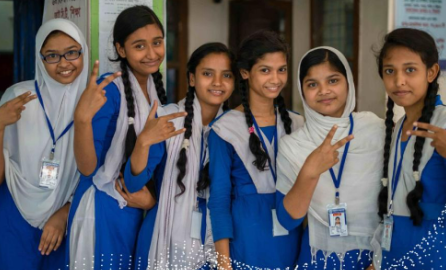Voice to foster peace in South Sudan
- Gender marker: G2-Promotes gender equality as a primary objective
- Period of implementation: 2021 - 2023
- Amount: 1,000,000 EUR
- Geographical area: Sub-Saharan Africa
-
Implementing partners:
- Women For Women International WfWI (lead)
- Reconcile (local)
- Link to the project: Women for Women International
- GAP III’s Areas:
- Gender- Based Violence
- Economic and social empowerment
The youngest country in the world, South Sudan’s political stability has been impacted by intercommunal hostility and violent clashes. Just two years after South Sudan’s proclamation of independence in 2011, tensions between ethnic groups and news of an attempted coup led to violent clashes that quickly escalated into a civil war.
Women in South Sudan face extraordinary challenges as the country accounts for the second highest prevalence case of gender-based violence in East Africa[1] and opportunities for education and vocational training are scarce. Laws and patriarchal norms limit women’s ability to inherit land, start a business and lead in public affairs. Most of the more than 4 million South Sudanese who are forcibly displaced are women and girls. The EU, in conjunction with key partners, are working to improve this situation thanks to “Enabling Equality: Promoting Women’s Empowerment in South Sudan”, a project that seeks to ensure a more equitable and enabling environment at the household and community levels.
Women for Women International (WfWI)’s works on providing psychosocial support to strengthen women’s confidence by overcoming barriers though holistic and participant-centred approaches tailored to the South Sudan’s unique context. In Yei, for example, 2,000 women are supported with numeracy skill building, forming, and managing savings groups, entrepreneurship, and vocational training. In addition, a monthly $10 cash transfer for each participant encourages women to launch small businesses. This was combined with training on income generation and business skills, all with the end goal of women forming stable income-generating groups.
On the more social level, training and social rights programmes focusing on leadership, decision-making, health and wellness, social networks, conflict resolution, awareness of mental health and psychosocial stresses, and trauma healing are provided in a holistic manner. Simultaneously, work seeking to strengthen healthy masculinity by using the Engaging Men through Accountable Practice (EMAP) approach was implemented.
WFW partners with Reconcile, a local South Sudanese civil society organisation to ensure local engagement and strengthen resilience. With their support, targeted groups include 2,250 vulnerable women (i.e. women with low incomes), female-headed households, internally displaced women, recently returned refugee women, disabled women, survivors of
gender-based violence as well as 1,100 male relatives and male community leaders in the Yei, Lainya and Morobo counties. The final beneficiaries include 300,000 Yei (including 20,000 internally displaced people), 16,200 Lainya (including 10,000 IDPs), and 38,000 Morobo (including 7,900 returnees).
Results vary from reinforcing financial literacy, a myriad of small start-ups, business, and market-based skills, increasing savings, and expanding livelihood opportunities. Socially, the population also gained improved knowledge of their rights, increased decision-making and leadership skills, improved health and well-being, and enhanced access to support services. This has led to new advocacy efforts and people making their voices heard. This increased social and economic stability, combined with the engagement of men throughout the process, allow this project to have a transformative impact, which could ensure poverty reduction, enhance gender equality, promote stability, prevent conflict, and enhance peace.
“Before the 2016 war broke out, I was living happily in Yei with my husband and children. I was dealing in small-scale food items business, coupled with medium scale farming with support from my children and husband. But due to war, life was a struggle until 2021 in April, when a relative of mine told me about the WfWI program and asked if I would be interested as enrollment was going on. I immediately went to the enrollment Center and started the training. I used my monthly stipends as capital to re-ignite my business and keep on increasing the scale of my products every month I received the stipends. Soon I started moving again to the nearby towns to get stocks and supplies and gradually my business grew. By the time I finished the training, I had learned a lot of skills in business, financial management and even in other social aspects of my life. With the knowledge I received, I used the post-training grant to expand my business to Juba where I would take local products from Yei (Farm produce) to Juba, sell them and return to Yei with new products from Juba (Fish, and manufactured/packed foods). I have been doing this since and my business has now significantly grown. I have already purchased land for some of my children and hope to buy for all of them soon. I am also able to pay their tuition and now my first son is already a university student at the University of Juba. I can also sustain my family all our basic family needs are now easy to meet. I am grateful to WfWI for enabling me to get back on my feet and improve my life and that of my family''
Caption: Aliya Antasia Elias at her retail display shop in Yei

